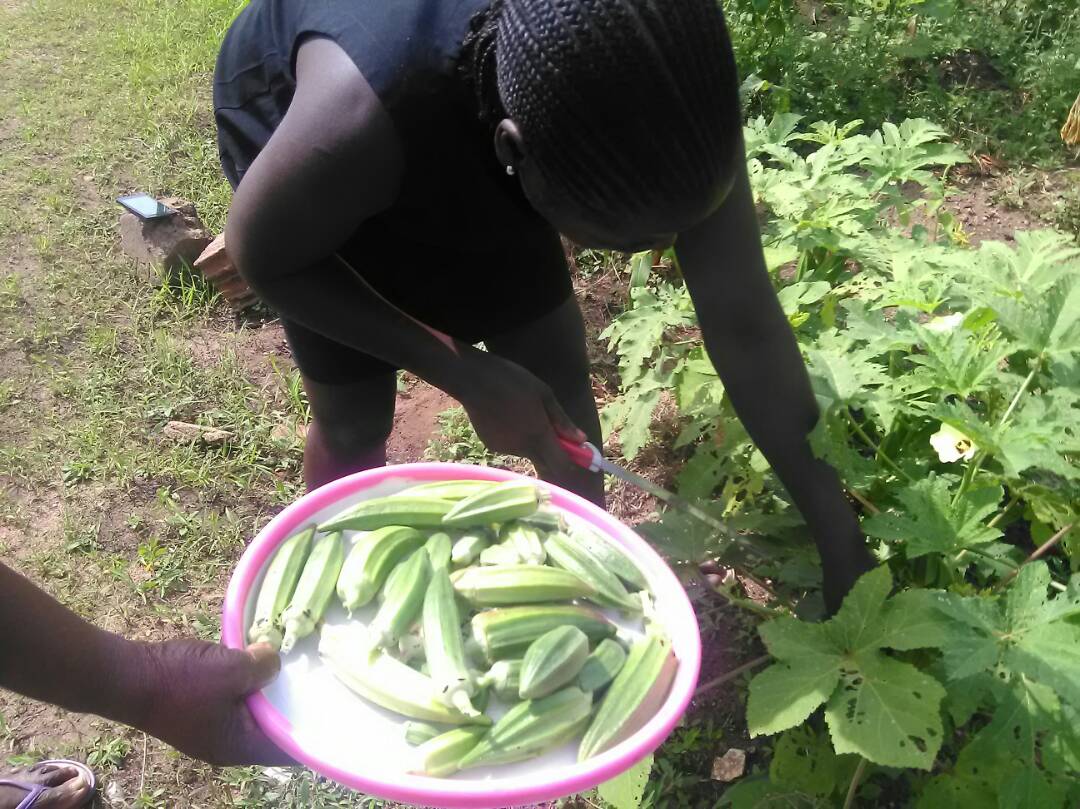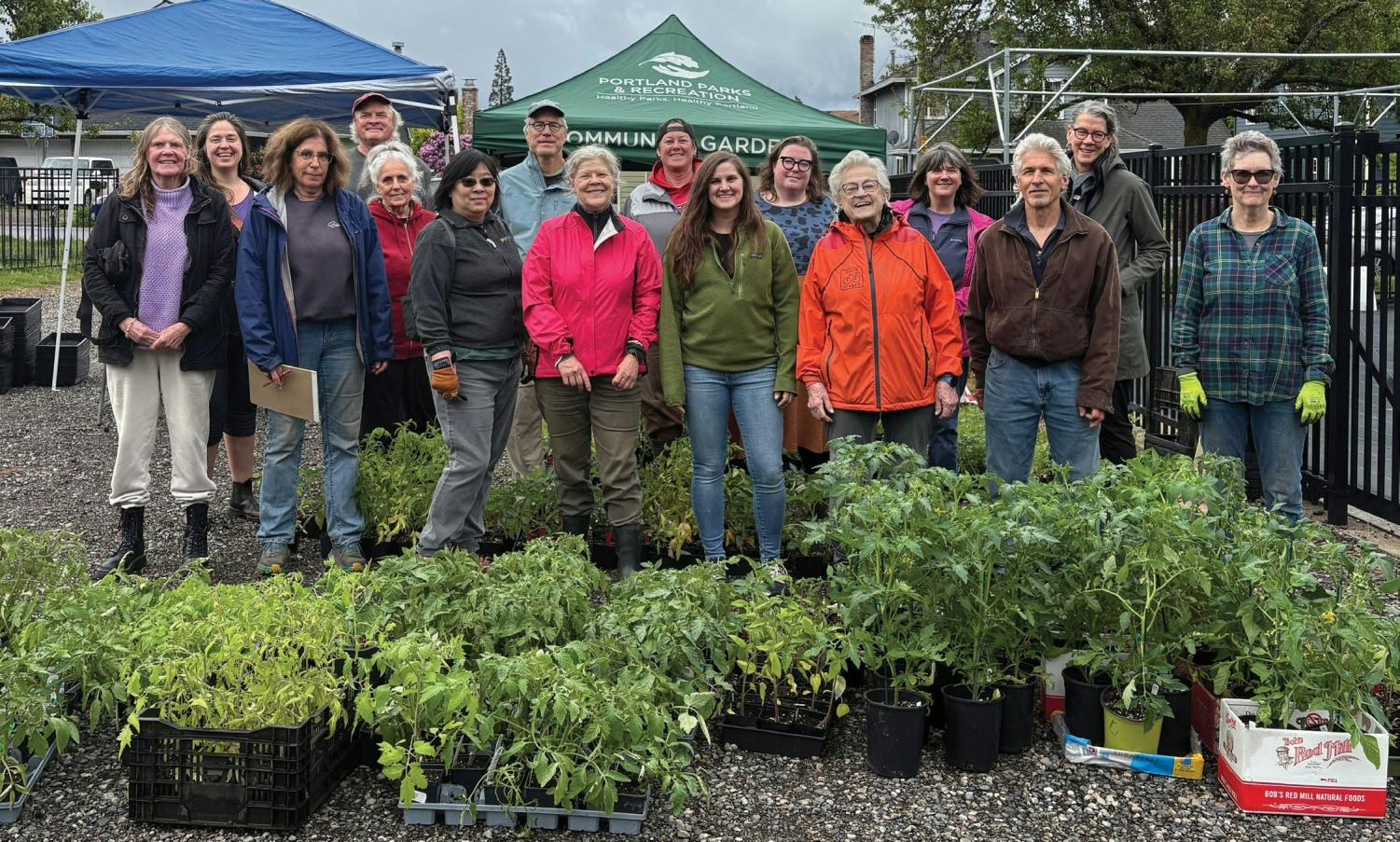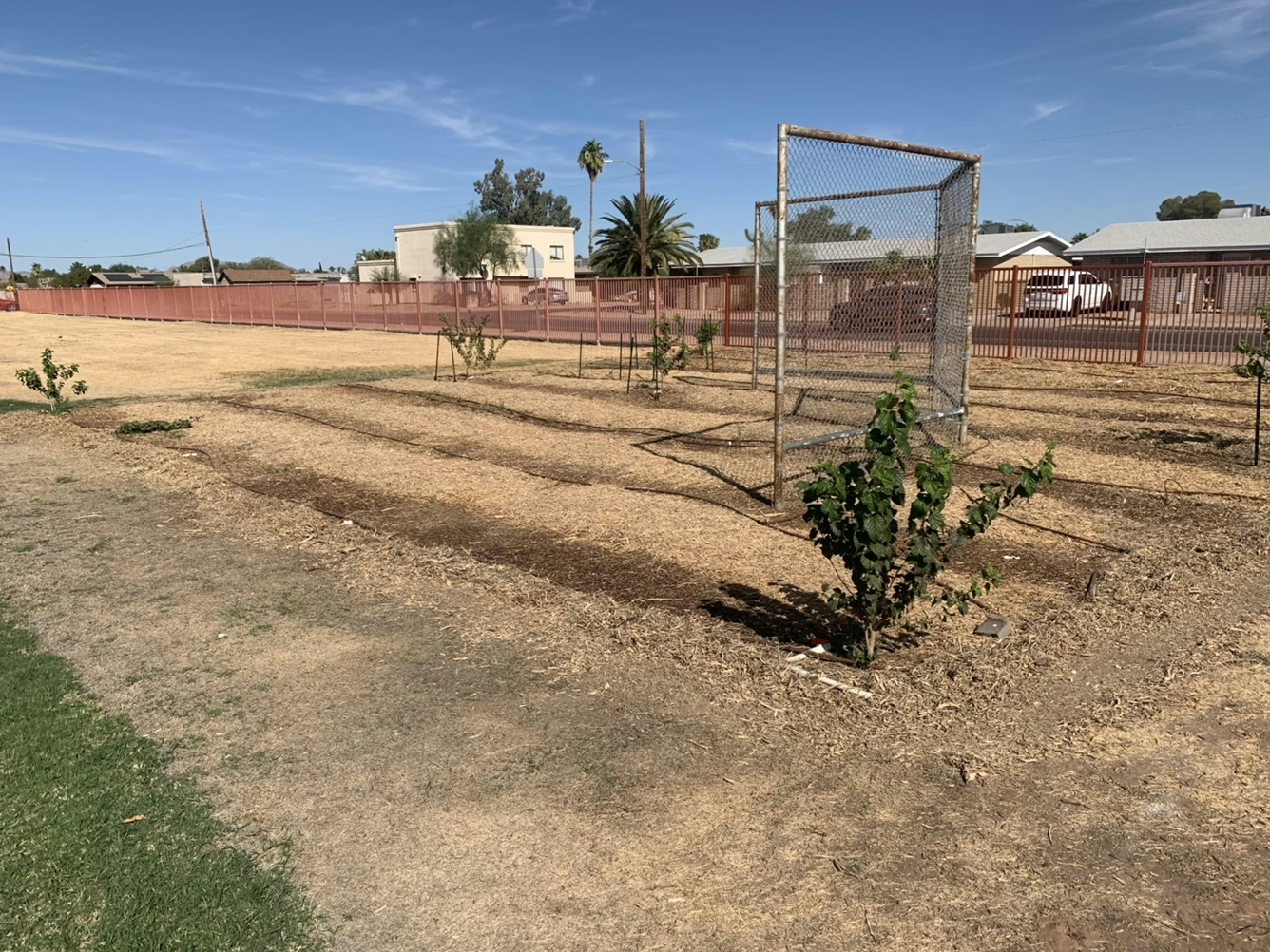By ways of innovative solutions and a commitment to women’s empowerment, the leaders of the Obodo Ahiara Community Garden in Nigeria combat food insecurity and increase the stature and independence of women in the community.
Situated in southeastern Nigeria’s Imo state, Obodo Ahiara is a rural community made up mostly of farmers and traders. Due to its remote location and high poverty rates, one of the most pressing issues for this region is the high level of food insecurity. According to one of the project’s main leaders, residents’ diets lack the nutrition they need as they often eat only basic staple foods.

The Obodo Ahiara Community Garden program sought to diminish food insecurity in this community by teaching women how to grow food for themselves and their children. This project is driven by Chioma Ike and Circuit Pointe, the Owerri, Nigeria-based NGO dedicated to women’s rights and empowerment that she runs. Circuit Pointe has about 40 people working for the company; most of them are volunteers while six are staff members.
After completing a digital introduction project in a nearby community of Nigeria, Ike and Circuit Pointe surveyed the Obodo Ahiara community to find out if they were interested having the same project done in Obodo Ahiara.
“What they told us was ‘No, we’re not very keen on having that project replicated in our community,’” said Ike. “’The issue we have as women is that we’re not empowered. We don’t have the power to feed our children without having to ask our husbands for crops from the farm. We only eat staple food; we only eat just one basic food every afternoon, just one basic food every morning. We don’t eat fruit; we don’t know how to grow them.”
Ike and other leaders then went back to the drawing board before deciding on teaching these women how to turn areas of their sandy compounds into rich, productive soils. They soon settled on two-pronged attack on food insecurity in the community.
The first part of the plan was to host a seminar dedicated to teaching the nearly 120 members of the women’s association in Obodo Ahiara strategies on how to turn their sandy compounds into lush soils, how to keep pests at bay naturally, and how to grow a variety of nutritious foods.
In the second phase of the project, three women were selected for hands-on gardening instruction using their backyards as demonstration plots. They were given seedlings, soil advice, and gardening advice as part of this instruction. Ike and Circuit Pointe selected these women for hands-on instruction because they are mothers of children under five years old; this metric was a driving factor for their selection as the leaders believe the nutrition of young children to be of paramount importance for this project.
The project has seen a grateful response from members of the local women’s group as well as from the women who were selected for the more in-depth gardening tutorials.
“We have had a lot of requests from them to see if we can replicate the project and if we can increase the number of demonstration plots, if we can continue to give support to the new people that actually want to start backyard farming,” said Ike. “We’ve had positive responses from the women’s group …. And the mothers with children under five. They are very grateful because now they feel that they can give their children variety which they were not entitled to at a younger age.”

As this was a project committed to combating food insecurity, the women were encouraged to grow nutrient-rich foods to enhance diet diversity. One of the crops that all of them were told to grow was okra due to its abundance of dietary fiber, vitamins, and folic acid. The women also grew tomatoes, peppers, cucumber, pineapple, melons, and cocoyam, a root vegetable also known as taro.
After many of the plants were ready to be harvested, the project leaders held a small celebration for the women who were beneficiaries of program. The women cooked a traditional Nigerian dish, Okra Soup, using only the food items from their garden.
In addition to this celebration, the Ike and the leaders plan to host a cooking competition for the three women who participated in the hand-on training. The competition has only one rule: the women can use only foods grown in their backyard gardens.
Even with all of these success stories, the story of the Obodo Ahiara Community Garden has not always been one of success. The Obodo Ahiara Community Garden’s relationship to SeedMoney began when it created a page during its crowdfunding campaign last fall. Although their campaign gathered very little of their funding goal, they were able to secure a grant from SeedMoney that allowed the project to continue. While the SeedMoney grant did not complete the garden project’s crowdfunding goal, it pushed Ike and the other leaders to find a way to make the project work with the money that they had.
“We agreed with the stakeholders, with the women, we told them that the money wasn’t up to what we needed to do the whole project, but that we needed to share some activity,” said Ike.
Not receiving all of their funding goal disappointed the leaders of the project, but the grant from SeedMoney spurred the leaders to find a way to work with the money they had received. Instead of buying the equipment for the women to use in their garden, the leaders instead called upon the women of the community to share their tools with each other and also decreased the number of women that would receive the hands-on instruction—it was initially five.
In the face of serious limitations, the leaders and project participants have worked together to make this project successful. In places where the funding fell short, the women shared their tools, time, and expertise to bolster both the project and their community. In doing so, the women of the Obodo Ahiara community have learned how to use their backyards to make their children and themselves healthier. They saw growth rates of 85 percent, and they strengthened community ties through working together towards a common goal. This project is a shining testament to the power of critical thinking and gardening to effect positive change in communities around the world, and SeedMoney is grateful to be a part of it.





